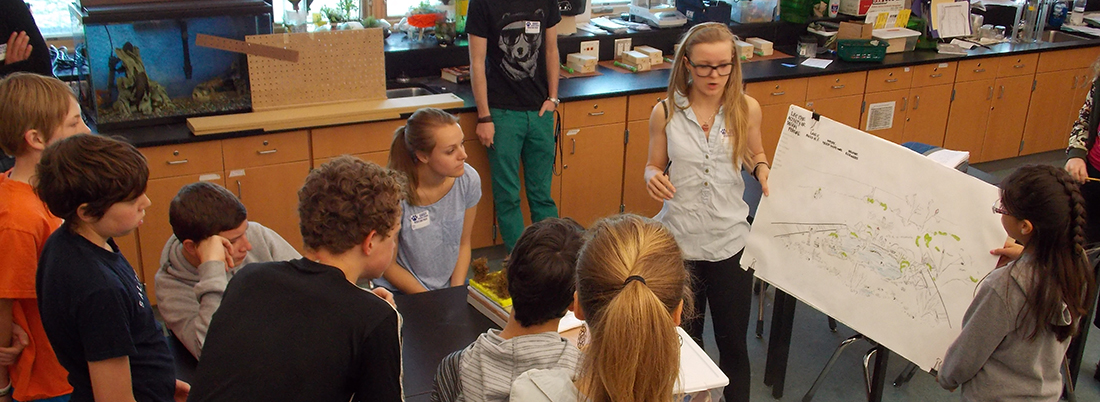TEACHING COMMUNITY ENGAGED RESEARCH
Tori Derr
— curator —
Community engaged research, also known as community-based participatory research (CBPR), participatory action research (PAR), and community engaged scholarship, is a collaborative research approach that directly involves community members in identifying issues and questions to be addressed, collecting and analyzing data, and deciding how and to whom research results are presented.
These approaches seek to restore a balance of power between researchers and the researched and to create meaningful partnerships that can support social or environmental change.
Many types of researchers work within a community, or with community members, but community-based participatory research distinguishes itself from other forms of research in that it is explicitly focused on equitable involvement of community members in research.
Community-based participatory research also tends to focus on the valuing and discussion of local knowledge and actions rather than knowledge that can be generalized to a population as a whole.
Community based participatory research can take many forms. It can be conducted through a relationship between a single academic researcher and community partners.
It can be facilitated through institutionalized campus-community centers or partnerships, which often seek to build long-standing relationships with specific goals or outcomes.
It also can be woven into a university course, in which students are engaged in the research process as part of their learning.
CBPR emerged in the fields of public health and urban planning in the 1960s and 1970s as a means to directly connect people with actions and decisions that affect their lives.
CBPR or PAR are also involved in research related to literacy and education, feminism and gender studies, and civic engagement.
While participatory action research has been applied within conservation and natural resources contexts since PAR’s early inception, it has more recently been integrated into the academy as a field of scholarship and as a means to integrate research into teaching.
In this context, PAR has been applied in ways that integrate community development and sustainable livelihoods within a place-based, geographically specific context.
Youth Participatory Action Research (YPAR) is also an outgrowth of community engaged research and has been applied across many disciplines.
Specifically related to climate change, scholars and practitioners who work on climate adaptation planning, resilience, and disaster preparedness or response promote participatory approaches to research so that plans and policies reflect the specific context of local communities.
Community engaged research in this context matters because the understandings of how communities should adapt and respond to the challenges of climate change is inherently place-based and geographically contextual.
Community engaged research therefore offers essential knowledge to the public understanding of what should be done while also empowering communities to reduce their risks and to build resilience (Schumann, Binder, & Greer, 2018).
In this way, community engaged research also contributes to climate justice because when local communities are involved in discussing plans and policies, they can voice concerns or needs that might otherwise be overlooked.
Participation thus helps to avoid the continuation of inequitable systems and instead advances, and can give priority to, a more equitable future.
Literature Cited
Schumann, R. L., Binder, S. B., & Greer, A. (2018). Unseen potential: photovoice methods in hazard and disaster science. GeoJournal, 1-17.
- Updated — January 15, 2021
MENU OF RESOURCES
FEATURED MEDIA RESOURCES
Regeneracion — Tori Derr, NEXT EARTH Teaching Conference, June 2019, UCSB
Details:
Produced by Tori Derr and Regeneracion for Next Earth: Teaching Climate Change Across the Disciplines – a nearly carbon neutral conference at UCSB.

